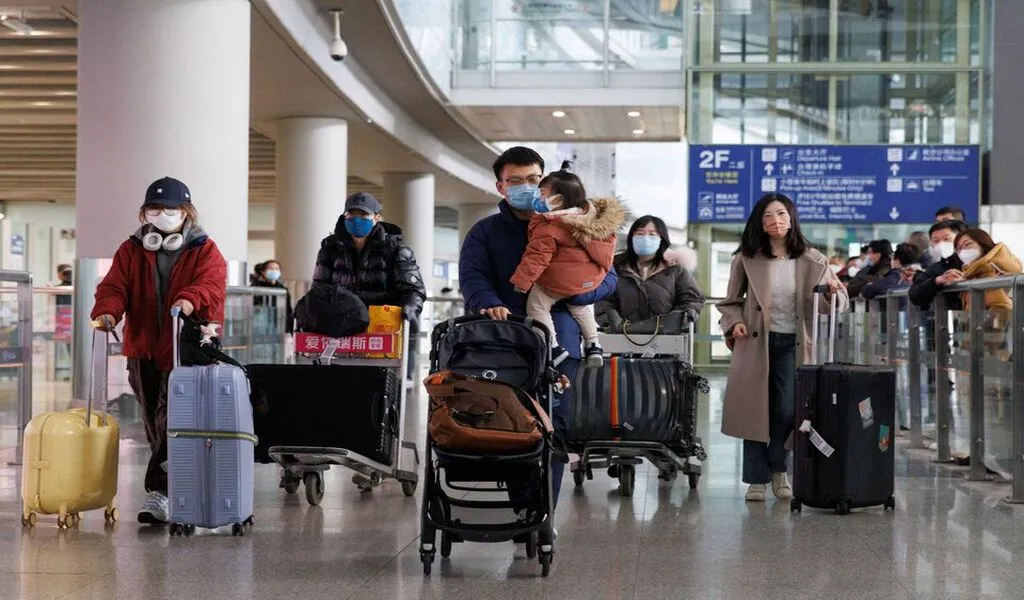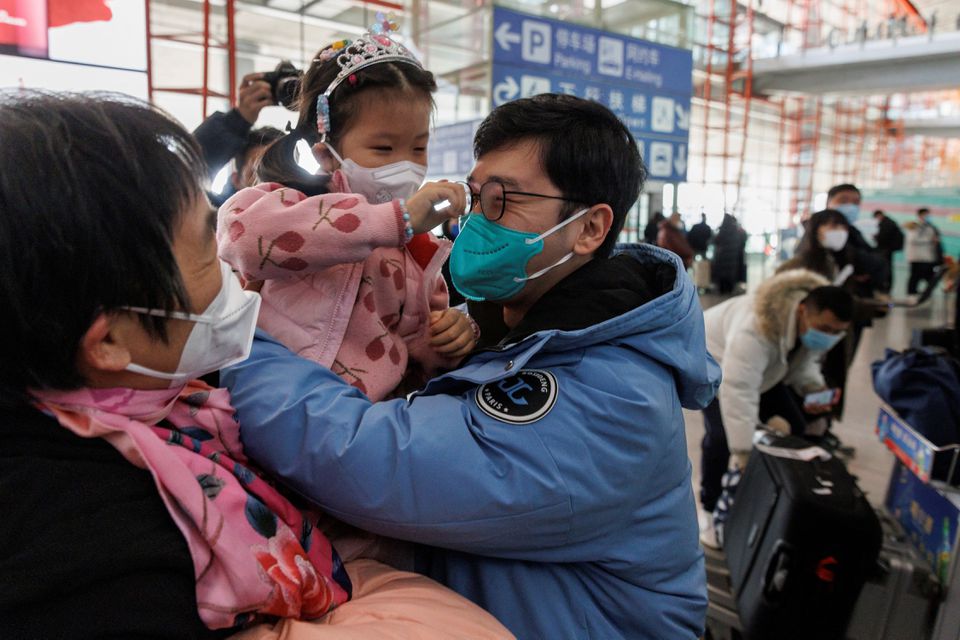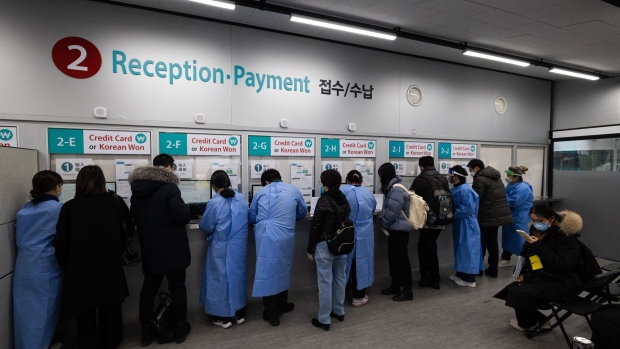News
China Suspends Short-term Visas for Japan and South Korea Over COVID Curbs

(CTN News) – Tuesday marked the start of China’s retaliation against South Korea and Japan, two nations that have restricted travel from China, the last major economy to reopen its borders after a three-year embargo.
The embassy of China in Seoul announced that it has stopped issuing short-term visas to travelers from South Korea. According to the Japanese Kyodo news agency, Beijing has sanctioned Japan with identical measures.
China decries “discriminatory” South Korea border rules.
On Sunday, China’s borders were once again open. This marked the end of the “zero-COVID” system, which it started rapidly dismantling in early December in response to long-standing demonstrations over the limits.
Since early 2020, the world’s second-largest economy has seen one of its weakest growth rates in over half a century, resulting in widespread anguish. This is due to frequent lockdowns, constant testing, and numerous other mobility restrictions.
China has ceased disclosing daily infection totals since the virus was released.
Chinese embassy and consulates in South Korea will suspend issuing short-term visas, including business, tourism, medical, transit, or private affairs, from today. The measures will be adjusted depending on the cancellation of discriminatory travel restrictions against China. pic.twitter.com/MpoIwRbLcj
— Yicai Global 第一财经 (@yicaichina) January 10, 2023
Since the policy change, it has been reporting five or fewer fatalities per day, statistics that the World Health Organization has contested and that are at odds with funeral establishments’ reports of a rise in demand for their services.
In response to the COVID epidemic in China, the United States, South Korea, France, and other countries increased testing measures.
Because foreign experts anticipate at least 1 million fatalities in China this year, certain nations have expressed worry over Beijing’s openness about the scope and effects of the epidemic.
Washington has also expressed worry about possible viral mutations in the future.
Beijing requires negative COVID test results from everyone who enters the country, but authorities this week warned to retaliate against nations that require testing for anyone leaving China.
On its official WeChat account, the Chinese embassy in Seoul said it would modify its most recent visa policies if South Korea lifted its “discriminatory entrance restrictions” on China.
Some cities say peak of COVID infections was last month.
According to various sources in the travel sector cited by Kyodo, China has also informed travel companies that it no longer issues new visas for Japan.
The criticism of China’s statistics has been rejected as politically driven efforts to undermine its “success” in combating the epidemic, and the country claims that any future mutations will likely be more contagious but less destructive.
On Tuesday, state media kept downplaying how serious the epidemic was.
According to numerous authorities featured in an article in Health Times, a journal run by People’s Daily, the official newspaper of the Communist Party, infections has been dropping in Beijing and several other Chinese provinces.
As of January 6, the 100 million-person central province of Henan had a roughly 90% infection rate, according to Kan Quan, head of the Office of the Provincial Epidemic Prevention and Control.
Beijing’s interim mayor, Yin Yong, said the city had reached its pinnacle. The climax was achieved on December 20, according to Li Pan, deputy head of the municipal health commission in Chongqing.
On December 22, Jiangsu province climaxed, while Zheijiang province reported that “the initial wave of diseases has passed peacefully.”
Before the year was over, two cities in the southern Guangdong province—the center of Chinese manufacturing—reached their peak levels.
Financial markets saw the new border restrictions as a minor annoyance on Tuesday when the yuan reached an almost five-month high.
Even while the number of daily flights into and out of China is now just a tenth of pre-COVID levels, companies around Asia, including those in Thailand, South Korea, Japan, and South Korea, and K-pop groups, are salivating at the thought of more Chinese visitors.
Before COVID, Chinese consumers spent $250 billion overseas annually.
Other COVID disputes were festering in China in addition to the reaction against South Korea and Japan.
The #Patients with #COVID19 are seen treated at No.2 People’s #Hospital in #FuyangCity, #China on January 1, 2023. 📷 Sheldon Cooper for SOPA Images pic.twitter.com/BvLPN2yJ4y
— SOPA Images (@sopaimages) January 10, 2023
Chinese state media criticise Pfizer over Paxlovid price.
State media has also criticized Pfizer for charging too much for Paxlovid, a COVID medication.
It is no secret that US capital forces have already amassed a sizeable fortune from the sale of pharmaceuticals and vaccinations across the globe, and the US government has been cooperating the whole time, according to an editorial in the nationalist newspaper Global Times.
The pricing of Paxlovid was being discussed with Chinese officials, according to Pfizer’s Chief Executive Albert Bourla, but not the licensing of a generic version in China.
Many hospitals were taken off guard by the unexpected shift in COVID policy, and smaller communities were left scrambling to get basic anti-fever medications.
Youcare Pharmaceutical Group Chairman Yu Weishi told Reuters that in the previous month, his company increased production of its anti-fever medications five times to one million boxes daily.
The most popular product at another pharmaceutical company, CR Double Crane, according to Wang Lili, general manager, is intravenous drips.
To satisfy demand, the firm has eliminated weekends from January 5.
We operate continuously, Wang said.
Related CTN News:

































